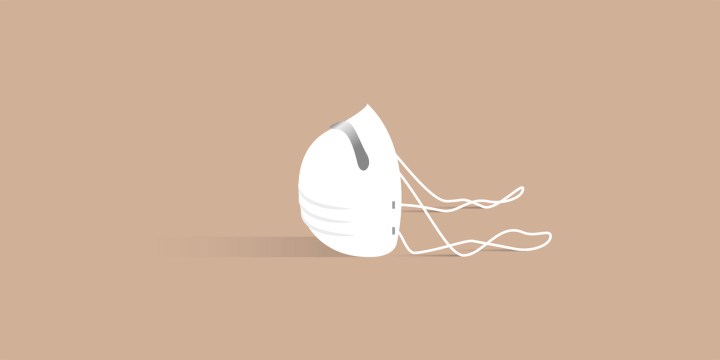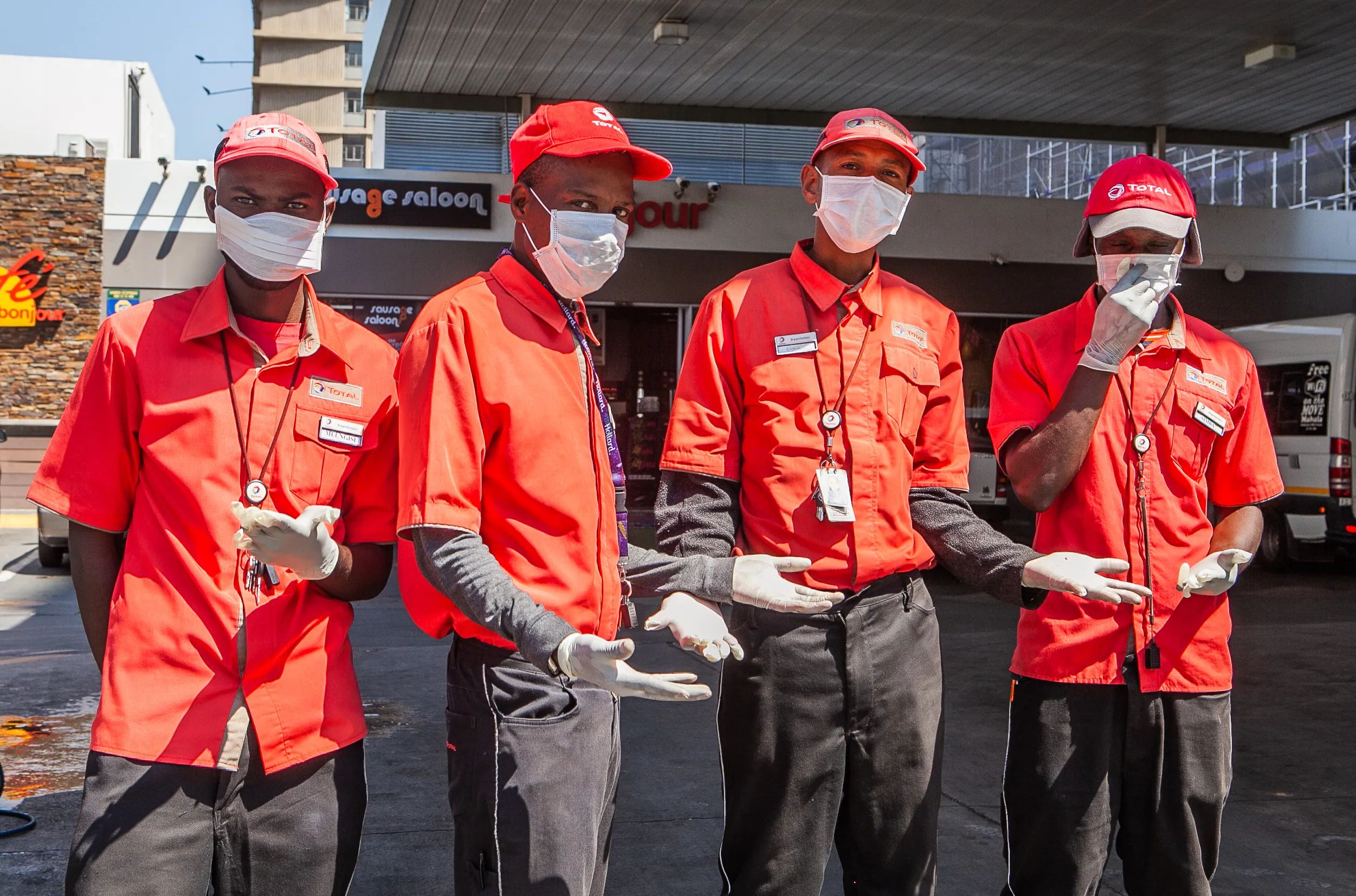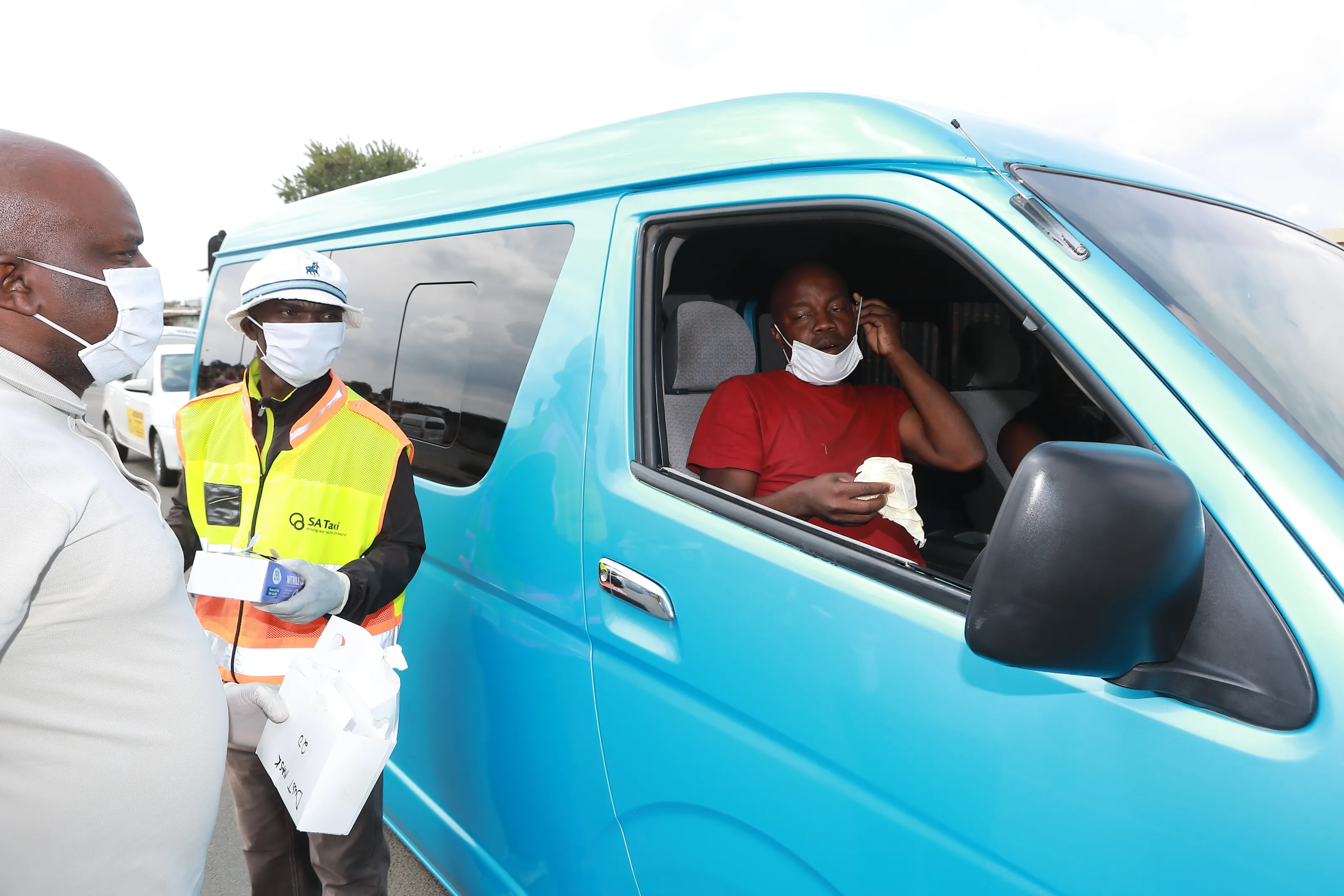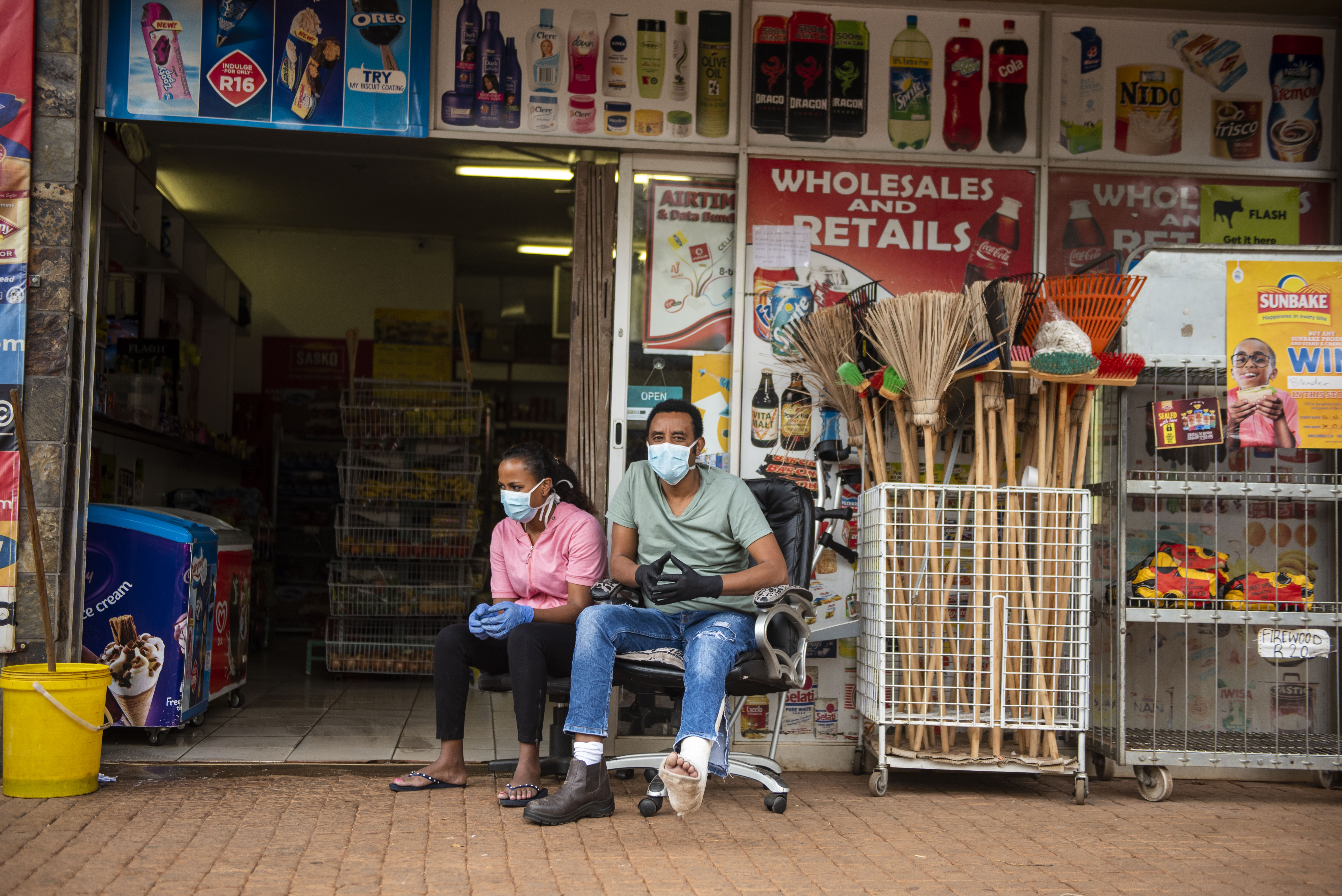CORONAVIRUS #LOCKDOWN
The great protection debate: Policy shifts towards masks in SA and elsewhere

Health Minister Zweli Mkhize has urged the public to wear masks to protect themselves and others from coronavirus infection. The Western Cape Department of Health says it’s both unnecessary and potentially risky. Now Transport Minister Fikile Mbalula has ordered taxis to supply passengers with medical-grade masks – all while the great mask debate continues to rage globally, along with a shortage of masks.
Should ordinary members of the public – not healthcare workers – wear masks during the Covid-19 pandemic?
It’s a simple question, but one without a simple answer.
As of 1 April, the South African government’s answer seems to be: yes. When Daily Maverick contacted the Department of Health to ask for clarity on the official stance on mask-wearing, we were directed to Health Minister Zweli Mkhize’s public comments on the matter this week.
Mkhize said: “There is no question that the use of masks is one of the best ways of preventing the spread of infection. We recommend them, particularly where people have any cough or any symptoms or in a situation where social distancing is a bit difficult.”

JOHANNESBURG, SOUTH AFRICA – MARCH 20: A general view of people wearing masks amid the coronavirus pandemic in Braamfontein on March 20, 2020 in Johannesburg, South Africa. It is reported that South Africans are taking measures to curb the spread of the COVID- 19 after it was declared a national disaster by President Ramaphosa. (Photo by Gallo Images/Sharon Seretlo)
Amendments to the public transport regulations during lockdown also now mean that minibus taxis may carry more passengers, as long as they are wearing masks.
The taxi-related policy changed twice in the course of Wednesday alone, with Transport Minister Fikile Mbalula first announcing at an afternoon press conference that taxis would now be permitted to carry 100% passenger loads as long as all passengers were wearing surgical masks.
By Wednesday night, Mbalula had been forced to “rescind” this. The updated policy is now that taxis may only carry a maximum of 70% of their passenger loads — and all passengers must wear N95 respiratory masks.
The question of where these medical-grade masks are going to come from, in a situation where healthcare workers have already reported shortages of protective gear, is already being raised – along with concerns over whether taxi drivers seeking to fill their vehicles may end up re-using masks and inadvertently exacerbating health risks.
But the conclusion we can draw from the new policy is that the South African government has accepted the notion that the protection offered by masks may be better than nothing, particularly in cramped environments like taxis.
Not all local authorities have agreed on this up till now. The Western Cape Department of Health posted a statement on its website on 29 March appealing to members of the public not to wear gloves or masks.
“Personal protective equipment (PPE) is a scarce commodity and should be used appropriately and by the appropriate people. If you are not ill and not in close contact with someone who has coronavirus, you do not need to wear a mask or gloves,” the department stated.
“Scientific evidence proves that by wearing a mask, if it is not needed, you may put yourself at higher risk because you fiddle with the mask and then transfer germs from your hands to your face. Wearing a mask or gloves when going to the supermarket or pharmacy to buy essentials is ineffective, unnecessary, and will not protect you from the coronavirus. In fact, it can spread infection faster.”
Daily Maverick contacted the Western Cape Department of Health on Wednesday to ask if this directive still stood, given the national government’s increasing embrace of mask-wearing for the general public. This article will be updated with the relevant comment once received.

SOWETO, SOUTH AFRICA – MARCH 23: Medunora taxi owner’s association officials hands out face masks and gloves to taxi drivers in Meadowlands along Van Onselen road on March 23, 2020 in Soweto, South Africa. The initiative aims to curb the spread of the COVID-19 after it was declared a national disaster by President Ramaphosa. (Photo by Gallo Images/Fani Mahuntsi)
The South African government’s stance is in line with news from the US this week that the Centres for Disease Control and Prevention (CDC) has asked the White House to consider recommending that face coverings be routinely worn out in public.
Writes the Washington Post: “If adopted by the coronavirus task force, the recommendations would represent a major change in official CDC guidance that healthy people don’t need masks or face coverings”.
This pivot reflects the ambivalence that has surrounded the issue of mask-wearing from the start of the pandemic, and which persists today.
The argument for wearing masks is that germ-bearing droplets are less likely to enter a person’s mouth or nose if a barrier is worn over those orifices. Masks also may help prevent wearers from spreading their own droplets to others through actions like breathing, talking, yawning, sneezing or coughing. This is particularly useful if someone is sick but has not yet realised it because they are still asymptomatic, and so are continuing to visit shops.
There is limited research available on the subject, but at least two studies published in the respected medical journal BMJ, in 2008 and 2015, have supported the idea that masks can offer some protection from respiratory viruses – as long as they are used properly, consistently, and in combination with other measures like hand-washing.
But masks certainly should not be seen as a magical bullet against coronavirus infection, particularly because the surgical masks most people favour do not fit snugly and do not filter out small viral particles. Once again, the argument is that some protection is better than none.

PRETORIA, SOUTH AFRICA – MARCH 30: A general view of shop owners wearing masks on Day Four of National Lockdown on March 30, 2020 in Pretoria, South Africa. According to media reports, President Ramaphosa announced a 21 day national lockdown to try to contain the spread of COVID-19. (Photo by Gallo Images/Alet Pretorius)
The arguments against wearing masks are, first, those advanced by the Western Cape Department of Health: that it may cause users to touch their face more often and inadvertently spread germs in that way.
Second, there has been a legitimate fear globally that encouraging the public to wear masks would mean a shortage of protective gear for the healthcare workers who need it most. Few countries have sufficient masks available for the medical sector — and South Africa is not one of them.
In March, Bhekisisa reported that some local healthcare workers were claiming they already had to re-use masks when treating Covid-19 patients.
The third argument against encouraging widespread mask-wearing is that it may foster a deceptive sense of security and inadvertently encourage complacency in other regards.
Yale University infectious disease expert Jaimie Meyer recently told Vox:
“I fear that if we tell everyone they should go out and buy masks, it will not only contribute to the PPE shortage, but it will give a false sense of a ‘quick fix’ for protection, whereas people still need to be practising social distancing strategies that are much more effective, though perhaps socially, psychologically, [and] logistically challenging”.
One thing experts are in agreement on is that members of the public should not be wearing N95 respirators, which are the masks recommended for healthcare workers and which have to be properly fitted. This is the aspect of the government’s new taxi policy that is likely to be considered most controversial.
Indeed, it is widely considered unethical for people who are not healthcare workers to be buying up N95 respirators even if they have the means to do so.
Both Facebook and Apple in the US bought up millions of N95 masks for employees following the California wildfires, and are now donating them to health workers around the world.
In the US, some hospitals and clinics are even asking the public to donate disposable surgical masks, and encouraging ordinary people to use fabric face coverings instead if they wish to have some facial protection.
Cloth masks – in other words, using a scarf or bandanna to cover your face – have been shown to be even less effective than surgical masks. But healthcare workers in desperate straits, lacking either surgical masks or N95 respirators, have been advised in countries like Australia to use cloth masks rather than no mask at all.
It has been suggested that the same applies to members of the public: particularly if it is possible that you are sick – and everyone is encouraged to think of themselves as potentially sick – then covering your mouth and nose with a scarf or similar material may be better than nothing. The relevant fabric covering should be thoroughly washed when you return home.
The World Health Organisation recommends the following as best practice when it comes to wearing masks:
- Before putting on a mask, clean hands with alcohol-based hand rub or soap and water.
- Cover mouth and nose with mask and make sure there are no gaps between your face and the mask.
- Avoid touching the mask while using it; if you do, clean your hands with alcohol-based hand rub or soap and water.
- Replace the mask with a new one as soon as it is damp and do not re-use single-use masks.
- To remove the mask: remove it from behind (do not touch the front of mask); discard immediately in a closed bin; clean hands with alcohol-based hand rub or soap and water.
The most important thing to remember, however, is that masks of whatever kind do not offer immunity against coronavirus infection. The best protection remains to stay at home, and if this is not possible, to be scrupulous about practising physical distancing and washing your hands. DM
"Information pertaining to Covid-19, vaccines, how to control the spread of the virus and potential treatments is ever-changing. Under the South African Disaster Management Act Regulation 11(5)(c) it is prohibited to publish information through any medium with the intention to deceive people on government measures to address COVID-19. We are therefore disabling the comment section on this article in order to protect both the commenting member and ourselves from potential liability. Should you have additional information that you think we should know, please email [email protected]"




 Become an Insider
Become an Insider